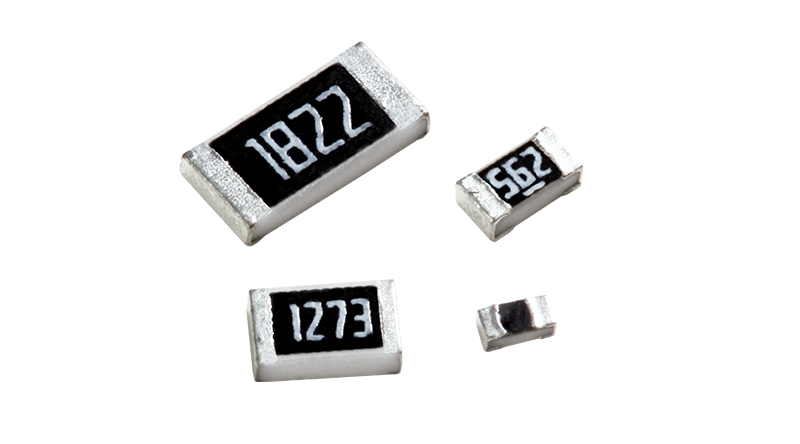The main difference between sulfur resistant resistors and ordinary resistors lies in their design for durability in sulfur-containing environments. The specific differences are as follows:
1. Material selection
Electrode material:
Ordinary resistor: Silver (Ag) is often used as the terminal electrode, which easily reacts with sulfur to form silver sulfide (Ag ₂ S), resulting in an increase in resistance value or an open circuit.
Sulfur resistant resistor: using sulfur resistant metals (such as palladium silver alloy, nickel or tin) or coatings (such as nickel barrier layer) to reduce the chemical reaction of sulfur.
Substrate and protective layer:
The anti sulfurization resistor may use a fully ceramic substrate to avoid the decomposition of organic materials (such as epoxy resin) in the sulfurization environment; The protective layer is denser to prevent sulfur infiltration.
2. Structural design
Sealing: The sulfur resistant resistor adopts a more rigorous packaging technology (such as vacuum sealing) to reduce the invasion of sulfides into the interior.
Internal paste: The resistor paste for thick film sulfur resistant resistors may not contain lead or other components that are prone to reacting with sulfur.
3. Application environment
Ordinary resistor: suitable for standard environments without sulfur pollution (such as consumer electronics products).
Sulfur resistant resistor: specifically designed for sulfur-containing environments (such as automotive electronics, industrial control systems, oil and gas equipment), especially under high temperature and high humidity conditions.

4. Testing standards
The anti sulfurization resistance needs to undergo sulfurization testing (such as JASO D001 standard) to verify stability in a hydrogen sulfide (H ₂ S) environment; Ordinary resistors do not have this requirement.
5. Failure mechanism
Ordinary resistance: Sulfurization causes electrode corrosion, resistance drift, or open circuit.
Resistance to vulcanization: By optimizing materials and structures, the vulcanization failure process is significantly delayed.
6. Cost and Performance
Due to special materials and processes, sulfur resistant resistors have a higher cost but a longer lifespan; Ordinary resistors have low cost and are suitable for conventional environments.
summarize
Anti sulfurization resistors ensure reliability in sulfur-containing environments through material improvement, structural optimization, and rigorous testing, while ordinary resistors are prone to failure under sulfur pollution. When making a choice, it is necessary to weigh the cost and durability according to the actual environmental requirements.
